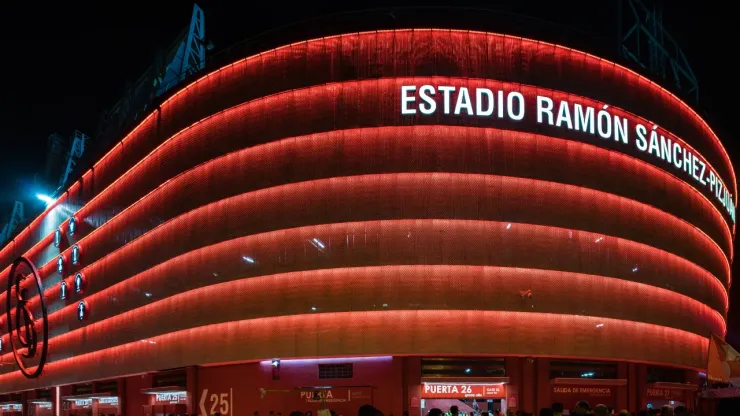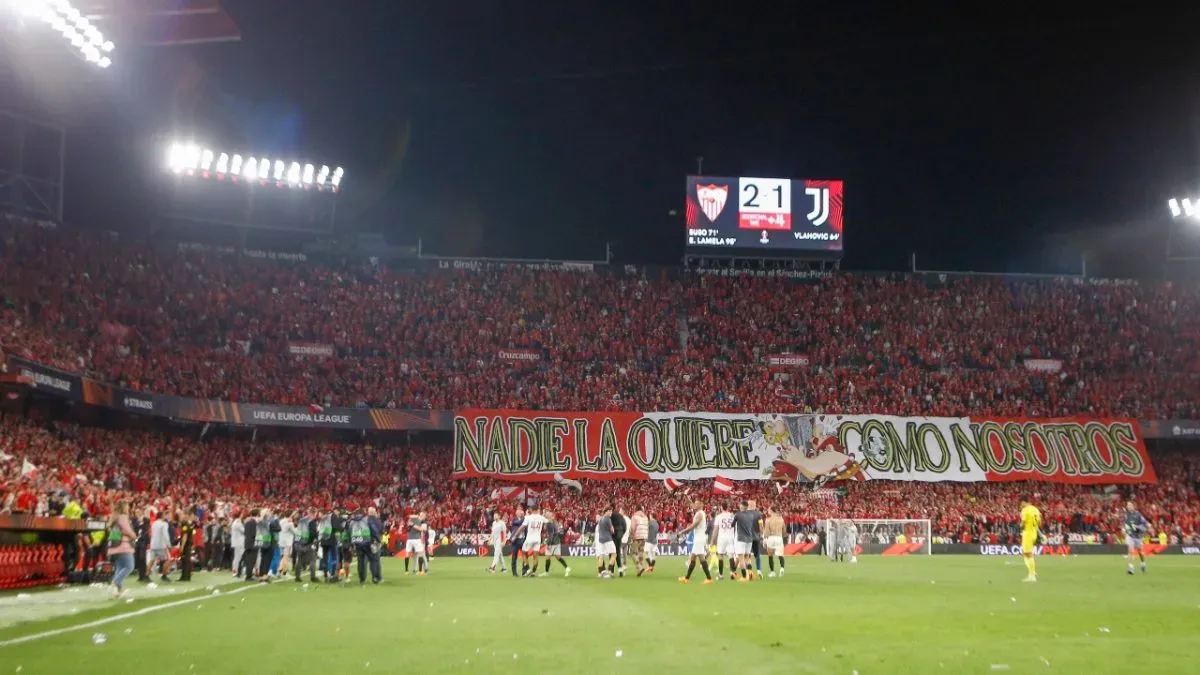
Sevilla’s Ramon Sanchez Pizjuan stadium is set to undergo a massive expansion, according to the club’s announced intentions. It’s believed to be one of Sevilla‘s few bright spots at a tumultuous shareholder meeting.
Yet, Jose Maria del Nido Benavente, a significant stockholder, has made it plain that he was against the initiative. Details of the proposed renovations to the historic stadium are on the club’s social media. The ideas call for an 11,000-seat capacity increase from 44,000 to 55,000.
Plans are for its development to begin in the Nervión district in 2026, replacing the existing facility. Constructing the new Ramon Sanchez Pizjuan stadium will require demolishing the existing building. That begins on June 1, 2026. Construction will finish in 2028.
While this is happening, Sevilla’s future playing location is still up in the air. They might easily negotiate to play at the underutilized Estadio de la Cartuja if Sevilla relocates. This stadium has hosted matches involving Spain and the Copa del Rey finals.
What will the new stadium look like?
The stadium will be able to host a wider variety of activities once it finishes, including soccer, thanks to a spectacular glass roof. Overarching the design is the roof, which serves to cover the whole stand.
Fans will instead be closer to the field, which will enhance the ambiance and audience participation during games. And instead of having separate rings, the Gol Norte will merge into one large stand that can accommodate 15,000 spectators.
A broader strategy to create year-round income unconnected to the club’s athletic performance includes renovating the stadium. It will cost between $324 million and $378 million, Diario AS suggests.
Predictions show a rise in the club’s income of about $30 million each year. A substantial portion of the financing comes from the CVC contract. The goal of the renovation is to transform Ramón Sánchez Pizjuán into a community hub. Therefore, it can host a variety of events and activities for the people of the city, rather than just soccer.
Most people are looking forward to the new stadium. Others fear how matches will happen during construction. The two clubs will share La Cartuja for a while due to the repairs on Real Betis’ Benito Villamarín stadium. The Spanish National Team uses the same arena for some of its games. Consequently, the arrangement and schedules between the three present a hurdle.
Multi-purpose stadium
The La Liga board, which is responsible for allocating the $2.5 billion money to clubs for infrastructure projects, did not authorize the project. Therefore, it does not qualify as a ‘Boost La Liga’ investment, even if it is developmental and should meet the financing requirements.
The announcement of the stadium proposals followed a November trip to the UK by club representatives. During that period, every La Liga team went on a stadium tour of key towns throughout the nation to learn more about how to make money from games.
The next season, Sevilla proposed extensive plans to upgrade the stadium’s physical plant. In addition to improving their standing in the community, they want to build a stadium that can accommodate large-scale events other than soccer.
PHOTOS: IMAGO.
200+ Channels With Sports & News
- Starting price: $33/mo. for fubo Latino Package
- Watch Premier League, Liga MX & Copa Libertadores
The New Home of MLS
- Price: $14.99/mo. for MLS Season Pass
- Watch every MLS game including playoffs & Leagues Cup
Many Sports & ESPN Originals
- Price: $10.99/mo. (or get ESPN+, Hulu & Disney+ for $14.99/mo.)
- Features Bundesliga, LaLiga, NWSL, & USL
2,000+ soccer games per year
- Price: $7.99/mo
- Features Champions League, Serie A, Europa League & EFL
175 Premier League Games & PL TV
- Starting price: $7.99/mo. for Peacock Premium
- Watch 175 exclusive EPL games per season






